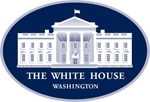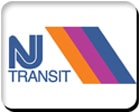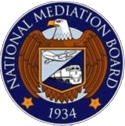
Tag: New Jersey Transit

Today’s talks were the first since Presidential Emergency Board 249 selected the unions’ final offer as the “most reasonable”.
Under Section 9a of the Railway Labor Act, which is the law covering NJT commuter rail workers, the cooling off period expires 12:01 am on March 13. If no deal is reached by then, the unions can strike and/or NJT can lock its workers out. A strike or lockout can only be ended by the parties agreeing to a settlement, or Congress passing a law to end the dispute, which both sides believe would be highly unlikely.
The unions adopted the impartial recommendations of President Emergency Board 248 as our final offer. The recommendations call for a contract averaging 2.5 percent a year coupled with significant increases in employee health care contributions. NJT’s offer is for 0.6 percent net wage increases per year. The two Presidential Boards consisted of six experienced and expert arbitrators appointed by President Obama.
Coalition spokesmen said, “The last thing we want is a strike. We have gone five years without a contract. Our settlement proposal is modest and fair. All we are asking is what has been recommended by two expert neutral panels. Congress changed the Railway Labor Act to try to prevent commuter work stoppages by having a second PEB recommend the most reasonable offer, with penalties imposed on the side that doesn’t accept the recommendation. That has almost always led to a settlement. Yet now NJT refuses. We call upon NJT to end this dispute without disruption to the riding public.”
The Coalition includes every rail union on NJT, representing more than 4,000 commuter workers.
For further information, contact:
- Steve Burkert, General Chairperson SMART Transportation Division, (973) 527-7018
- Dave Decker, General Chairman BLET, (973) 497-2497
- Mick Barrett, General Chairman BMWE-D, (215) 245-2236
- Anthony Stevens, Division Chairman TCU/IAM, (908) 220-6736
Click here to view the official press release from the New Jersey Transit Rail Labor Coalition.

The recommendations on the major issues of wages and health insurance contributions fall much closer to the terms proposed by the Coalition than those proposed by New Jersey Transit, although the Board did backload its wage recommendations to accommodate the railroad’s budgetary concerns.
The PEB found that the Coalition proposals were appropriately based on settlements in the commuter industry, while the company’s unprecedented reliance on a state worker concessionary contract was not persuasive.
Coalition spokespersons said, “The Presidential Emergency Board, composed of three veteran, distinguished neutrals, has proposed terms that represent a reasonable compromise approach to settlement. We sincerely hope that New Jersey Transit will now take this opportunity to bring this protracted dispute to an end.”
The board’s recommendations are non-binding and the parties now have 120 days to reach agreement based on the recommendations.
Summary of PEB 248’s Recommendations
The Board recommended wage increases totaling 18.4 percent in compounded wage increases over 6.5 year or 2.6 percent per year. When increases for health insurance factored in, the recommendations totaled 17.7 percent over the term or 2.5 percent a year.
“Over the years wage settlements at NJT have closely followed the general trend of wage changes at the other large commuter railroads in the region, including LIRR, Metro-North, SEPTA and MBTA. …The Board’s recommendations are consistent with the average annual uncompounded wage increases at the four other large commuter rail carriers. The average annual wage increases of all four of these commuter railroads is 2.6 percent, the same nominal wage rate increase recommended by the Board.”
Although the board recommended an increase in health insurance contributions and an increase in co-payments, the PEB rejected NJT’s proposal for a new inferior insurance plan and their proposal to make employees responsible for 50 percent of excise taxes incurred as a result of the Affordable Care Act.
“The Carrier’s proposal falls outside the current health insurance contribution trends in the industry. Our recommendation would move the employees’ contributions from 1.8 percent to 2.5 percent, which we do not consider an unwarranted increase.”
The PEB rejected NJT’s proposal to eliminate employee ridership passes. The Board also rejected NJT’s proposal to reduce contributions to new hire 401 (a) contributions and also recommended provisions for conductor certification pay.
What Happens Next
The Coalition and NJT have until November 12 to negotiate a voluntary agreement. If no agreement is reached by that time, either side or the Governor can invoke a second Presidential Emergency Board. That PEB will select the most reasonable final offer. Its recommendation again will be non-binding. The parties will then have until March 11, 2016, to reach a voluntary agreement. If no agreement is reached, self-help would then be possible.
The Coalition believes PEB 248’s recommendations provide a fair compromise and the basis of a voluntary agreement. New Jersey Transit is still evaluating the recommendations and deciding on its next steps. No negotiations have yet been scheduled.
Click here to read PEB 248’s report.

The agency will change its regular service to accommodate the estimated 2 million people who are expected to travel to see the pope during his two-day visit to Philadelphia. The pope also will visit New York City on Sept. 25 and Washington, D.C., on Sept. 24.
NJ Transit will offer a special, limited service on its Atlantic City Rail Line and River Line for people attending the World Meeting of Families and papal visit on Sept. 26-27.
Read more from Progressive Railroading.

In Connecticut, an aging swing bridge failed to close twice last summer, stopping train service and stranding passengers.
And last week, New Jersey Transit riders had a truly torturous experience. There were major delays on four days because of problems with overhead electrical wires and a power substation, leaving thousands of commuters stalled for hours. One frustrated rider, responding to yet another New Jersey Transit Twitter post announcing a problem, replied: “Just easier to alert us when there aren’t delays.”
Read more from The New York Times.

The Executive Order established the Presidential Emergency Board effective July 16, 2015, and the Emergency Board will report its findings and recommendations for settlement to the President within thirty (30) days of its creation.
President Obama also announced that he intends to appoint the following members to Presidential Emergency Board No. 248:
- Elizabeth C. Wesman – Chair, Presidential Emergency Board No. 248
- Barbara Deinhardt – Member, Presidential Emergency Board No. 248
- Ann Kenis – Member, Presidential Emergency Board No. 248
President Obama said, “The transit rail system is vital to our nation’s economy, and it’s crucial that we ensure it runs smoothly. That’s why I’m grateful these talented individuals have agreed to serve the American people by helping to swiftly and appropriately resolve these labor-management disputes.”
SMART Transportation Division Vice President Doyle Turner reports that the PEB will begin Monday, July 27 and will most likely go through Friday, July 31. Although the BLET, also part of the NJT Rail Labor Coalition, has sent out a strike vote that has been approved by their members, SMART Transportation Division has taken no such action and will only do so if necessary after the PEB gives its ruling.
Dr. Elizabeth C. Wesman, Appointee for Chair, Presidential Emergency Board No. 248
Dr. Elizabeth C. Wesman has been a full-time labor and employment arbitrator since 2000 and has practiced arbitration and mediation since 1981. She has arbitrated disputes in a wide array of industries, including railroad, aerospace, police and fire departments, and public and private universities. Dr. Wesman was Associate Professor of Strategy and Human Resources/Industrial Relations at the Whitman School of Management at Syracuse University from 1981 to 2000. She was also an Adjunct Professor at the Rochester, New York, Extension Division of Cornell University from 1990 to 2000. She was a lecturer in the Department of Human Resource Studies at the New York State School of Industrial and Labor Relations at Cornell University from 1980 to 1981 and an Instructor in the Department of Economics at Le Moyne College from 1970 to 1975. Dr. Wesman is a member of the National Academy of Arbitrators. She is on the arbitration rosters of the American Arbitration Association, the Federal Mediation and Conciliation Service, and the National Mediation Board. Dr. Wesman has been on a number of permanent panels, including the New York State/Public Employees Federation Panel, the Oregon Employment Relations Board, and the Washington State Public Employment Relations Commission. She is the immediate past-President of the National Association of Railroad Referees. Dr. Wesman received an A.B. from Smith College, an M.A. from Northwestern University, and a Ph.D. from the New York State School of Industrial and Labor Relations at Cornell University.
Barbara Deinhardt, Appointee for Member, Presidential Emergency Board No. 248
Barbara Deinhardt has been a full-time labor and employment arbitrator and mediator since 1995. She served as Chair of the New York State Employment Relations Board from 2007 to 2009 and as Member and Chair of the New York State Workers’ Compensation Board from 1991 to 1995. Ms. Deinhardt was the Deputy Commissioner for Legal Affairs and General Counsel to the New York State Department of Labor from 1986 to 1991. From 1984 to 1986, she was General Counsel to the Workers’ Compensation Board, and she was a Partner at Kestell, Pogue & Deinhardt from 1980 to 1984. She was a trial attorney with the National Labor Relations Board in Boston from 1976 to 1980. Ms. Deinhardt served as a member of the Foreign Service Grievance Board from 1999 to 2005. She is a member of the National Academy of Arbitrators, the College of Labor and Employment Lawyers, the National Advisory Board of the Berkeley Journal of Employment and Labor Law, the Labor and Employment Relations Association, and the New York State Bar Association. Ms. Deinhardt received a B.A. from Yale University and a J.D. from the University of California, Berkeley, Boalt Hall School of Law.
Ann Kenis, Appointee for Member, Presidential Emergency Board No. 248
Ann Kenis has been a professional arbitrator for the Federal Mediation and Conciliation Service and American Arbitration Association since 1992 and a hearing officer for the Illinois State Board of Education since 1994. She has arbitrated hundreds of disputes in a wide array of industries, including the railroad, manufacturing, automotive, education, transportation, postal service, public sector, service industries, trucking and transportation. From 1984 to 1991, she was an associate attorney for Arbitrator Elliott H. Goldstein. Ms. Kenis began her career as an attorney representing clients in matters of employment and education at Kerr & Longwell from 1981 to 1984. She has been on the arbitration roster of the National Mediation Board for 20 years. Ms. Kenis has been appointed to permanent panels for the State of Illinois Department of Central Management Services and its various unions, the Chicago Transit Authority and ATU Locals 241 and 308, and Caterpillar and the United Auto Workers. She is a member of the National Academy of Arbitrators and has served as Secretary/Treasurer of the National Association of Railroad Referees. Ms. Kenis received a B.S. from University of Illinois, an M.A. from Northwestern University, and a J.D. from Loyola University.

The bill would add money to Amtrak’s budget to fix some of the nagging NEC infrastructure problems, such as signal problems which caused 30 minute delays to Amtrak and NJ Transit trains as recently as Monday afternoon.
“This will help with the delays by improving signaling and the rail itself,” Booker said at a Monday press conference at Newark Penn Station with U.S. Senator Robert Menendez. “This will make somewhat of a difference and put resources in place for another (Hudson River) tunnel.”
Read more from NJ.com.

The unions, working together in the New Jersey Transit Rail Labor Coalition, immediately announced their intention to invoke a Presidential Emergency Board (PEB), which will make non-binding recommendations to settle the four year old contract dispute.
The Coalition includes every rail union on NJT, representing more than 4,000 commuter workers.
Coalition spokesmen said, “By announcing our intention to invoke a PEB, we want to remove any fears the riding public may have that a strike could occur in July. Our goal is to reach a voluntary agreement. We are optimistic that a neutral PEB will find reasonable our proposals to follow the pattern settlements reached on New York commuter railroads. There is simply no justification for the workers we represent to fall further behind their counterparts on Long Island and Metro-North railroads.”
Negotiations for new contracts opened on July 1, 2011. NMB efforts at mediation failed to produce agreements, prompting today’s releases. Under the governing Railway Labor Act, a strike would be possible at 12:01 AM, July 16, 2015, unless one of the involved Governors, the commuter agency or unions request the President to appoint an Emergency Board. Once appointed, the PEB will have thirty days to hold hearings and issue non-binding recommendations to settle the dispute. Creation of the PEB will start a 120 day cooling off period during which neither side can resort to self-help.
SMART Transportation Division’s General Committee of Adjustment GO 610 representing conductors and trainmen, General Committee of Adjustment GO 340 representing yardmasters and SMART Sheet Metal Mechanical and Engineering Local 396 representing mechanical workers have joined the New Jersey Transit Rail Labor Coalition in asking the National Mediation Board (NMB) to proffer arbitration to its members after reaching an impasse in contract negotiations with New Jersey Transit (NJT).
The 10 unions in the NJTRLC have requested that NMB release them from further mediation.
In the requests to the NMB, the coalition wrote, “… the Coalition’s proposal is consistent with all other commuter railroad settlements this round. The company’s proposal … calls for employee health insurance contributions well above the level at every other commuter railroad, while offering wage adjustments far below those achieved at every other commuter railroad during this round … It is clear an impasse exists.”
On March 23, the NMB forwarded the coalition’s release request to NJT and sought a response by April 6.
If the NMB agrees to release the coalition unions, it will proffer binding arbitration to the unions and NJT. When either side notifies the NMB that it rejects binding arbitration, that will begin a process that could take as long as 270 days if no voluntary agreement is reached, including two Presidential Emergency Boards. The first PEB would be appointed within 30 days of either side’s rejection of the proffer of arbitration. At the end of the 270 days, both sides may resort to self-help.
The coalition elected to seek release after it became clear that NJT would not make a reasonable offer. The coalition has proposed a settlement patterned after the contracts achieved this round on Long Island Rail Road and Metro-North Railroad. NJT insists on concessionary contracts, with employees with families paying more than four times what they currently pay for health benefits.
The coalitions’ goal is to achieve a fair, voluntary agreement. It believes it has a strong case to present to a PEB. In most commuter railroad labor disputes in the past, the PEB’s recommendations led to a voluntary agreement. However, unlike arbitration, a PEB’s recommendations are not binding.
The coalition formed over the last several months after three years of each union bargaining unsuccessfully with NJT. The member unions believe working together maximizes their potential power. The coalition unions represent 88 percent of NJT unionized workers.
Commuters could be hit with an NJ Transit fare increase that might reach 9 percent in fiscal year 2016, based on budget documents for the coming year.
NJ Transit’s budget documents said revenue from fares would increase by 8.8 percent, from the $928.6 million earned in fiscal year 2015 to $1.01 billion in 2016, according to an Office of Legislative Services’ review of NJ Transit’s financials.
Raed the complete story at NJ.com.